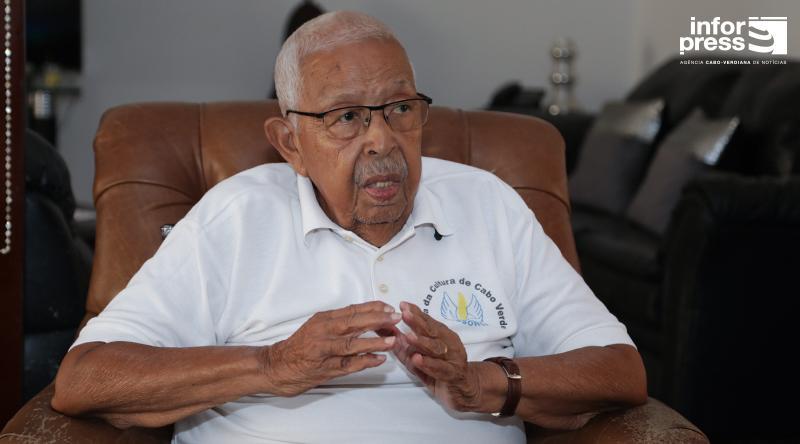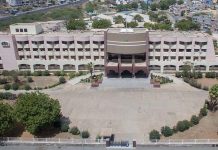By Asemana
Africa-Press – Cape verde. Former Cape Verdean President Pedro Pires considers the 25th of April the “most important” political and historical event that took place in Portugal in the last 50 years and that allowed Cape Verde as a colony to become a sovereign country.
“We are here in one of the most modern neighborhoods in the city of Praia, and all of this is the result of sovereign Cape Verde, which allowed great transformations. In 1975 there were two high schools in the country and now we have more than 60, all of this gives an idea of the transformation”, he said, emphasizing that at the time people were barefoot, the houses were covered in straw, but all of this has disappeared.
Pedro Pires spoke in an interview with Inforpress on the eve of the celebration of the 50th anniversary of the April 25th Revolution, also known as the Carnation Revolution, about how this date influenced Cape Verde’s economic and social performance 50 years later.
The former head of state stated that the 25th of April allowed the archipelago to benefit from the break with colonial and colonialist Portugal, and remain friends with democratic and anti-colonialist Portugal.
“ Allowing independence in which we work Cape Verde colony to be a sovereign country ”, he added, highlighting that from a historical and political point of view there is a before and after the 25th of April.
After 50 years, few people remember or refer to Cape Verde as a colony, perhaps, says Pedro Pires by way of question, “ some inhibition, shame, feeling or frustration of some kind? ”
However, despite these feelings that can mark oblivion, he made a point of remembering that the sovereign was born from Cape Verde, a colony and that if it were not for the colonial conditions of domination and everything the country went through in terms of oppression, lack of rights, the lack of food security, there would be no desire for the liberation struggle.
“Cape Verde, after the 25th of April and the negotiations between the PAIGC and the Portuguese Government, led to the signing of the agreement for the independence of Guinea and Cape Verde on the 19th of December 1974”, he said to say that today’s Cape Verde has “ little to do with what happened after April 25th, both in terms of economics, health, education, living conditions and even urban planning.
“ We are here in one of the most modern neighborhoods in the city of Praia, and all of this is the result of sovereign Cape Verde, which allowed great transformations. In 1975 there were two high schools in the country and now we have more than 60, all of this gives an idea of the transformation ,” he said, emphasizing that at the time people were barefoot, the houses were covered in straw, but that all of this has disappeared.
It goes even further by stating that Cape Verdeans previously emigrated, but that today’s Cape Verde receives immigrants, that we were a more homogeneous society and now we are a cosmopolitical society.
The former President of the Republic also states that in colonial times, with the exception of São Vicente, which received foreign boats in Porto Grande, other locations did not “see foreigners”.
“I saw my first foreigner when I left the place where I lived, seven kilometers from São Filipe to study and it was there that I came into contact with the Portuguese language. The question that always comes to mind is whether we are wanting more and better, because, if so, we do our best, as accepting mediocrity does not allow us to progress”, he reported.
He also spoke about the standard of living at the time when the GDP was around 220 dollars and now it is at six thousand dollars, about the presentation of Cape Verdeans, stressing that if we look at photos of before and today’s youth we can- if you notice a big difference and for the better.
“All of this gives us satisfaction despite the difficulties we still have and the persistence of poverty. Cape Verde 1974 and May 2024 do not compare,” she said.
For Pedro Pires, there is no doubt that the 25th of April changed a lot, mainly relations with Portugal as they are two sovereign states, but also, he argued, because it allowed peaceful access to independence, despite reaching that point At that point they had to fight, make war, and there were people who died and sacrificed for all of this.
But the 25th of April also, according to the former President of the Republic, marks 50 years since the closure of Tarrafal prison.
“What does this mean in terms of political freedom and liberation? Tarrafal was a symbol of colonization, of oppression, but it was also a symbol of resistance. To eliminate Tarrafal and take the next step, it was necessary to fight and required hundreds of people to be imprisoned in this prison”, he explained, highlighting that it was not a journey without problems, but rather “a fight for everyone that managed to win and open up new perspectives ”.
Asked whether the relations of friendship, politics and cooperation between the two countries are the most appropriate or whether they should improve, Pedro Pires goes back to the days of independence to remember that the first leaders of independent Cape Verde and those who negotiated independence with Portugal did everything so that there would be no rupture created with the negotiations on both sides.
He explained that everyone at the time did their best to maintain the conditions for the much better and superior development of relations between the two countries, which is why he also requested greater attention to the efforts made by the first leaders and negotiators who left the “path open , communication and dialogue” so that relations between the two States reached the point they are today.
“I don’t know if I can say whether I’m proud or not, but my feeling is that I did my best, as I always worked with serenity and loyalty towards Cape Verde and Cape Verdeans. More than that, my best friends were those with whom I negotiated at the time”, he said.
The man who says he gave his best to Cape Verde and its people, admits, however, to being “sad and amazed” by the events of the current world, in which the spirit of revenge, hatred and contempt for human life is what reigns.
Through these journeys, he highlighted, what is needed is another humanity in which we can speak without fear and without risk.
“At a global level, we want a different world, more humble and fraternal, where there is no difference between people because they have different religions”, he expressed as if in an appeal to the world.
On April 25, 1974, Pedro Pires said he had been in Guinea, although he later stated that he was unable to clearly see where he was today.
He assured, however, that on April 7, 1974, he was called to Conakry to prepare a document on the political and social situation in Guinea-Bissau and its needs at the time for Aristides Pereira, who was undergoing treatment, to take to Moscow .
The former Cape Verdean Prime Minister and President revealed that at the time everyone had the idea that Portugal was in crisis and that the country was forced to “change course”.
“Fortunately, the young captains had the courage to lead the break. That was very important. The great quality of these young people was that they had the boldness and vision of another Portugal”, he concluded.
Pedro Verona Pires was a leader of the African Party for the Independence of Guinea and Cape Verde (PAIGC) and, at the same time, a member of the Guinean Government (with functions for Cape Verde), after the unilateral declaration of independence from Portugal, in September 1973. .
asemana.cv
For More News And Analysis About Cape verde Follow Africa-Press






